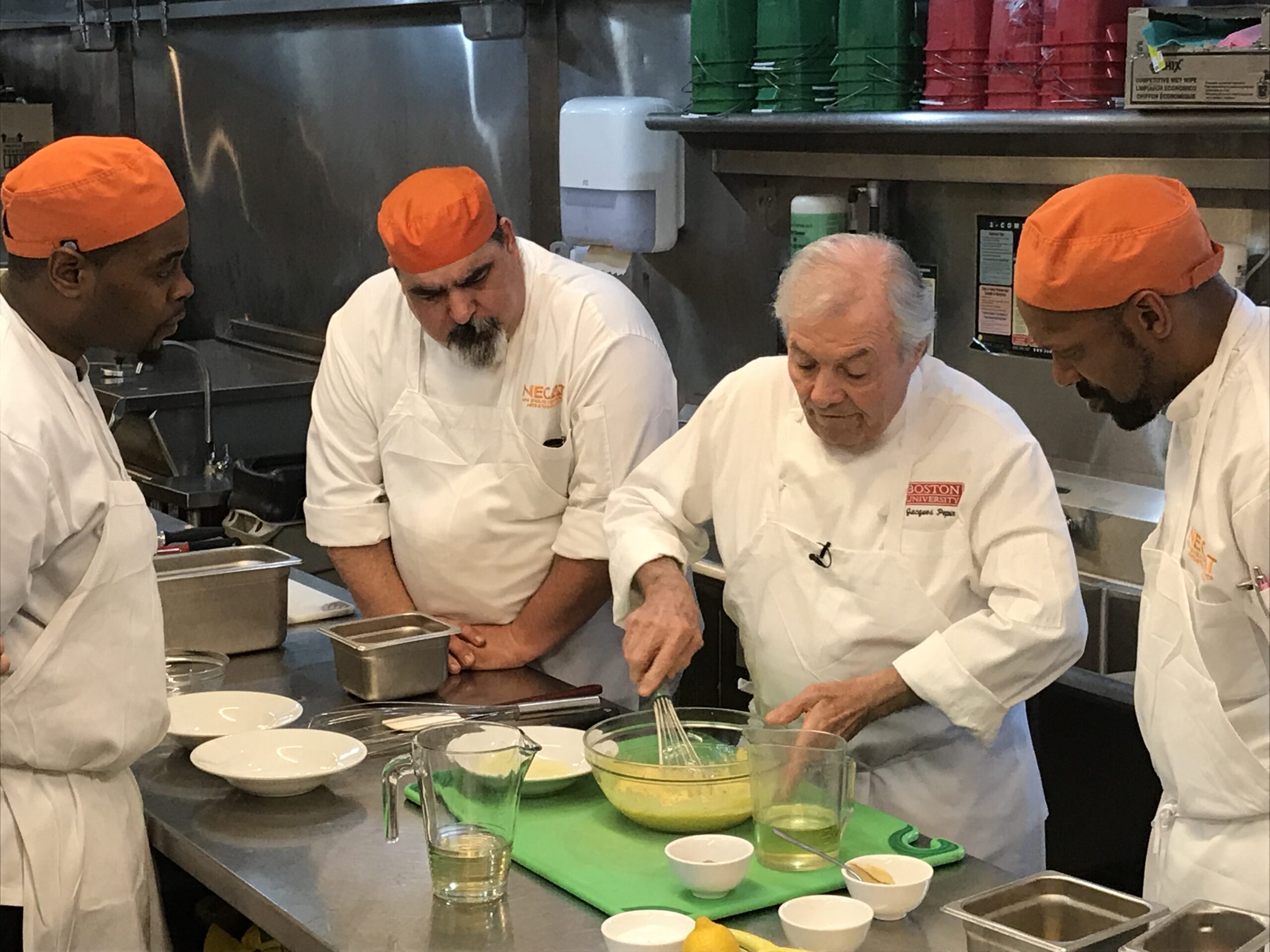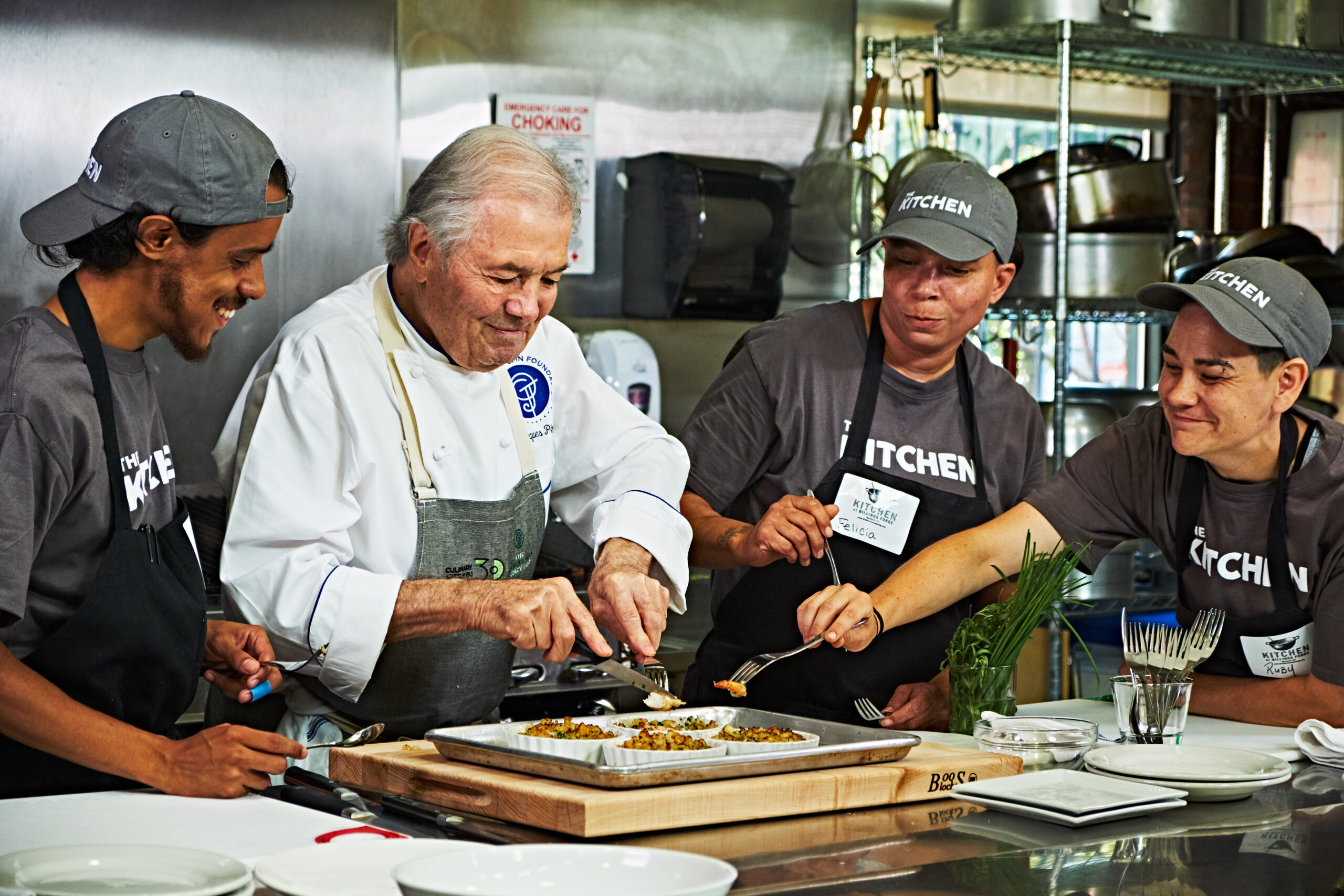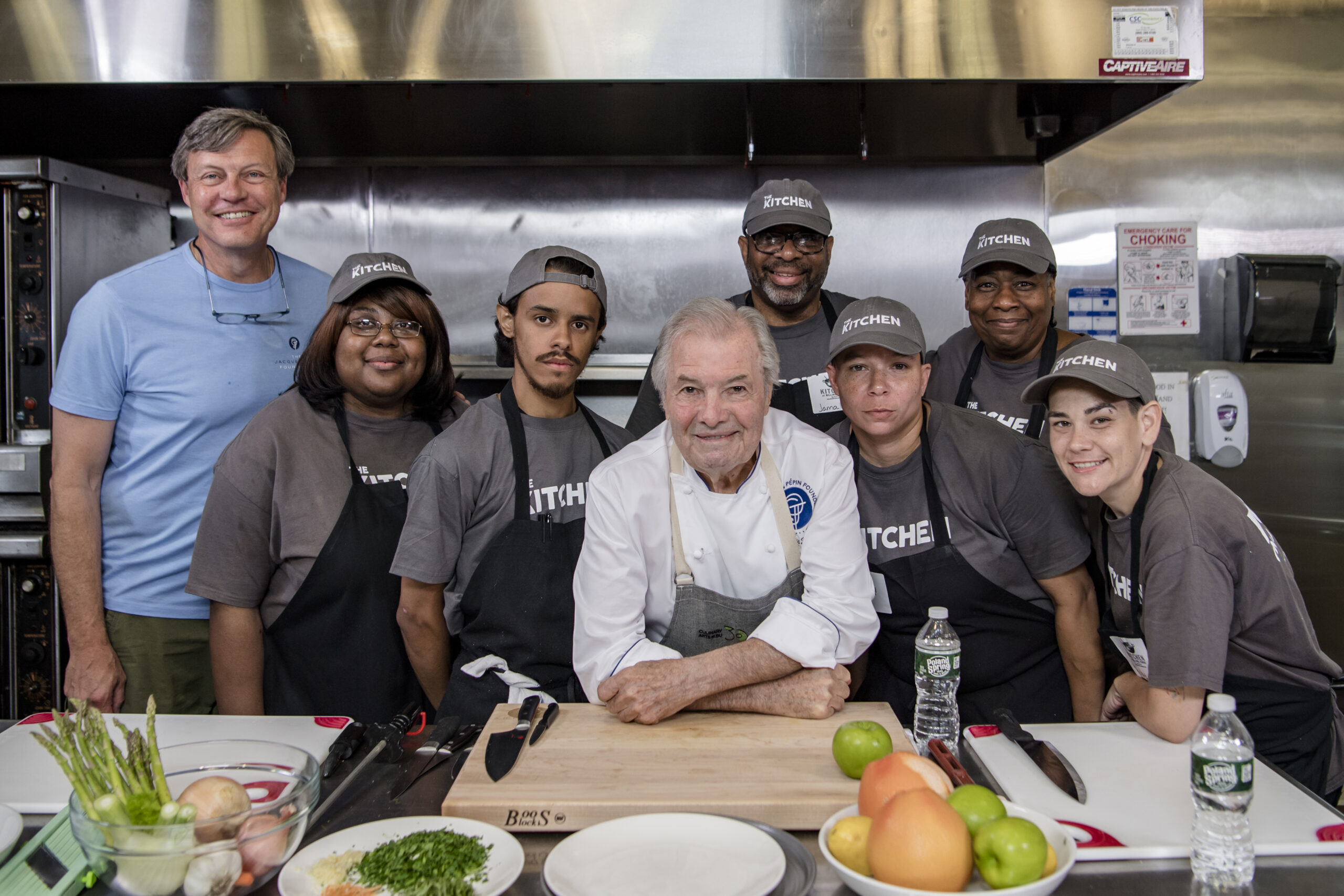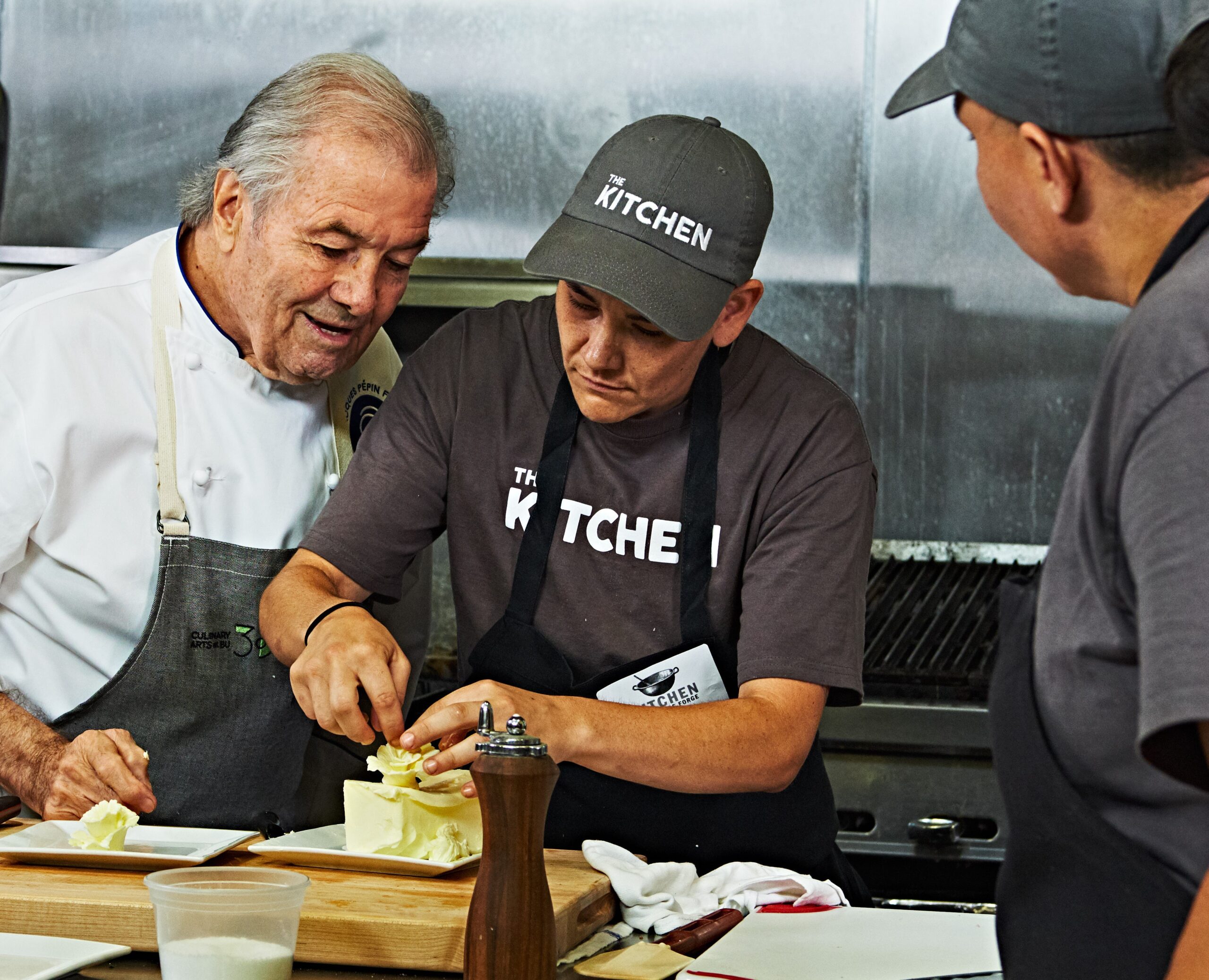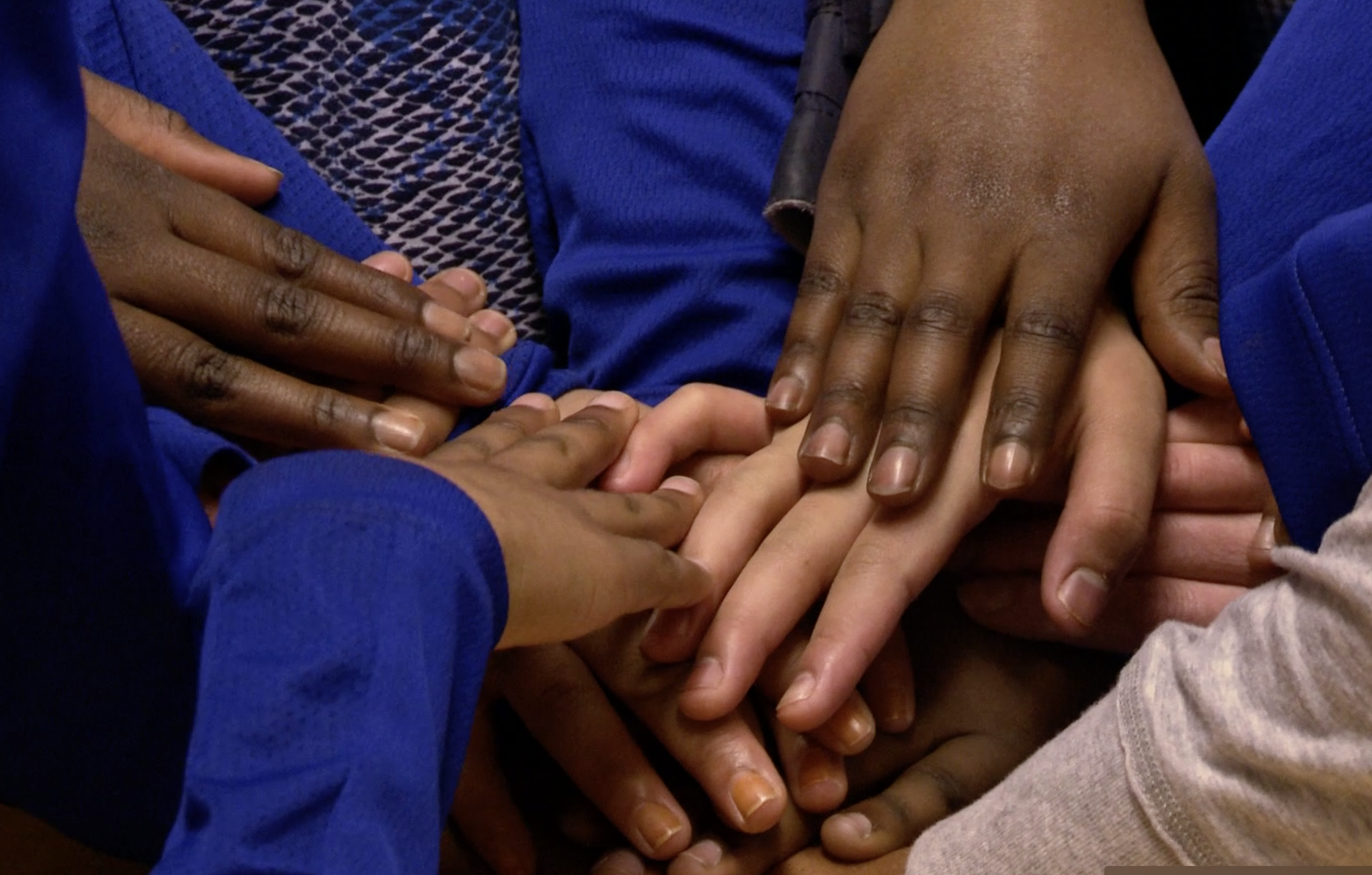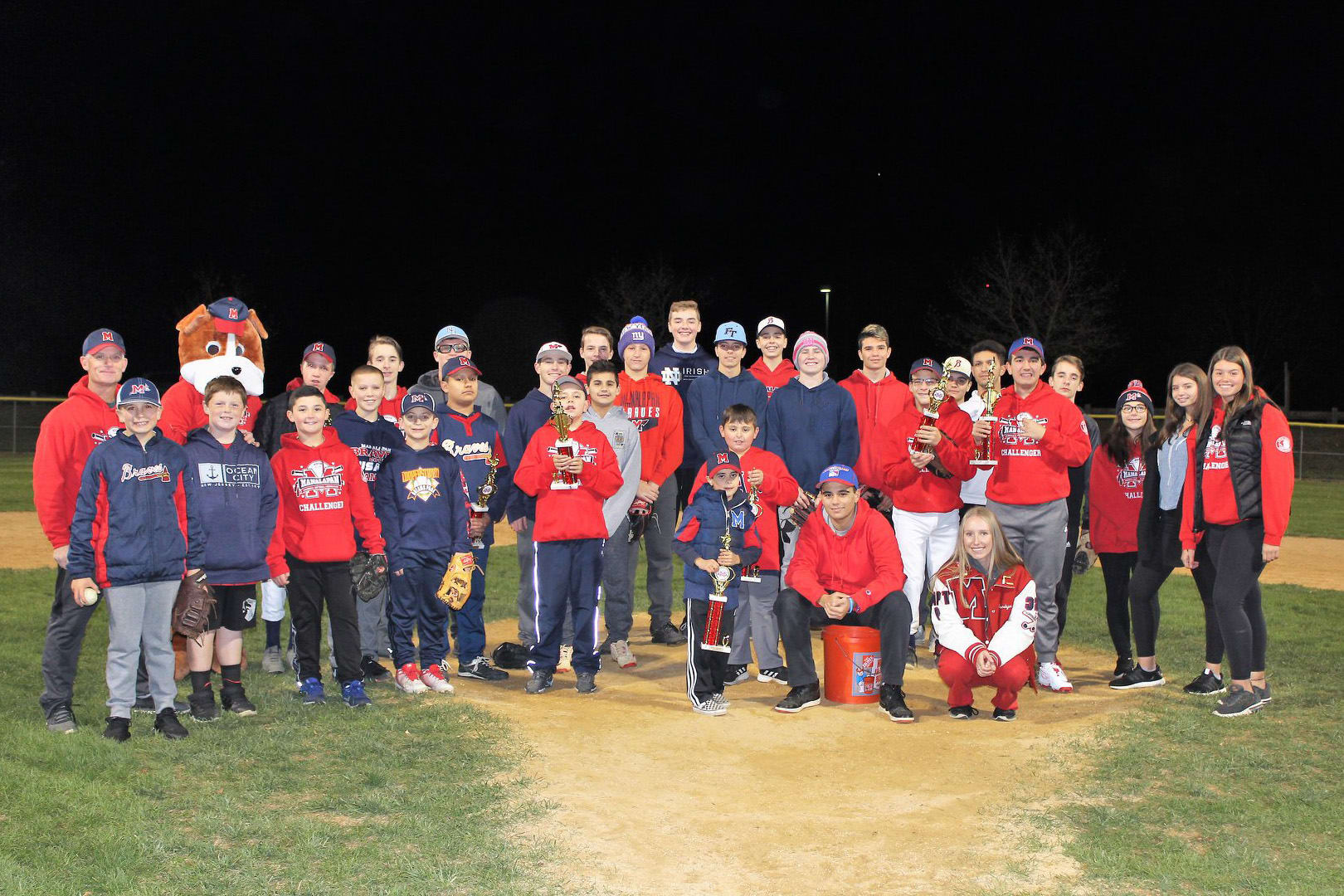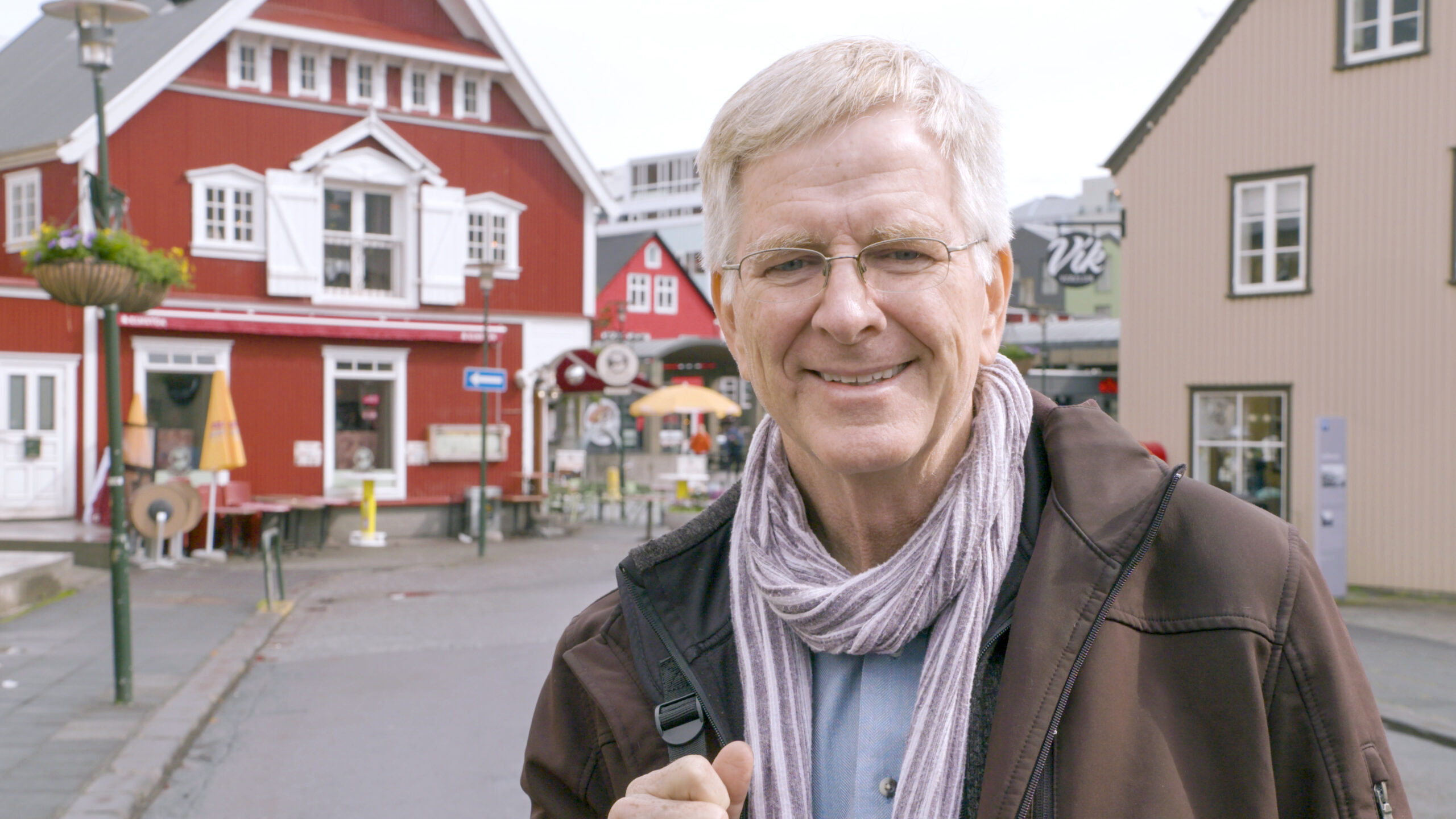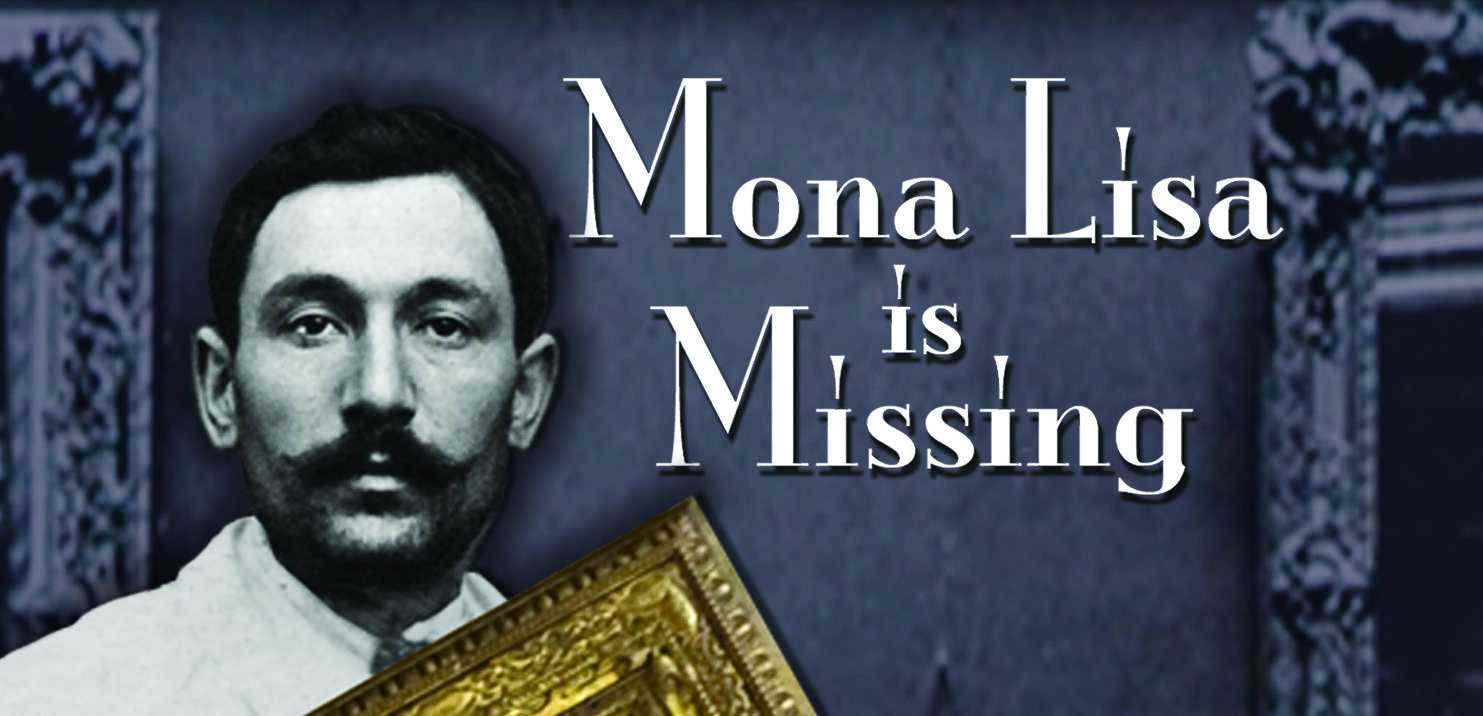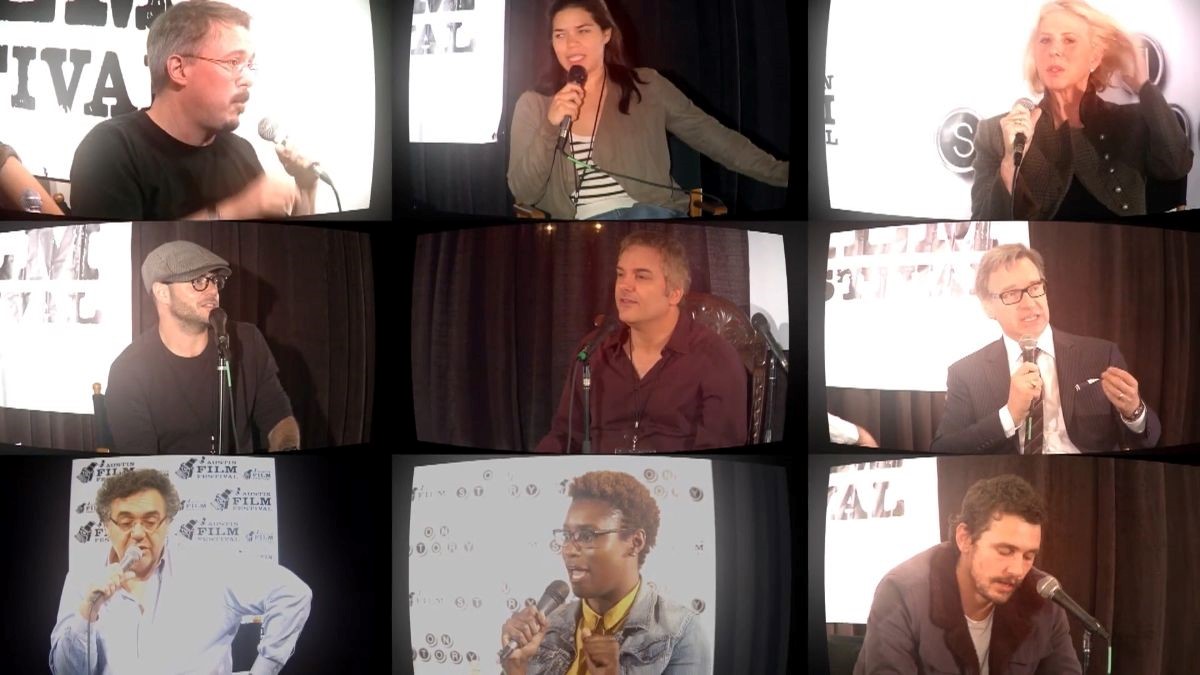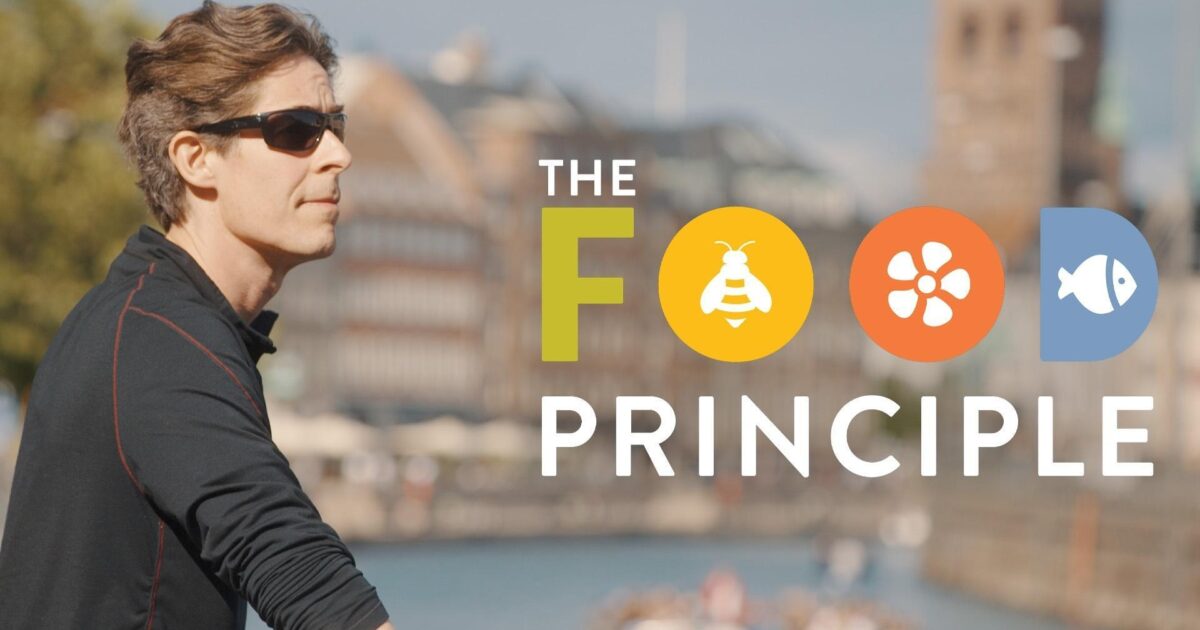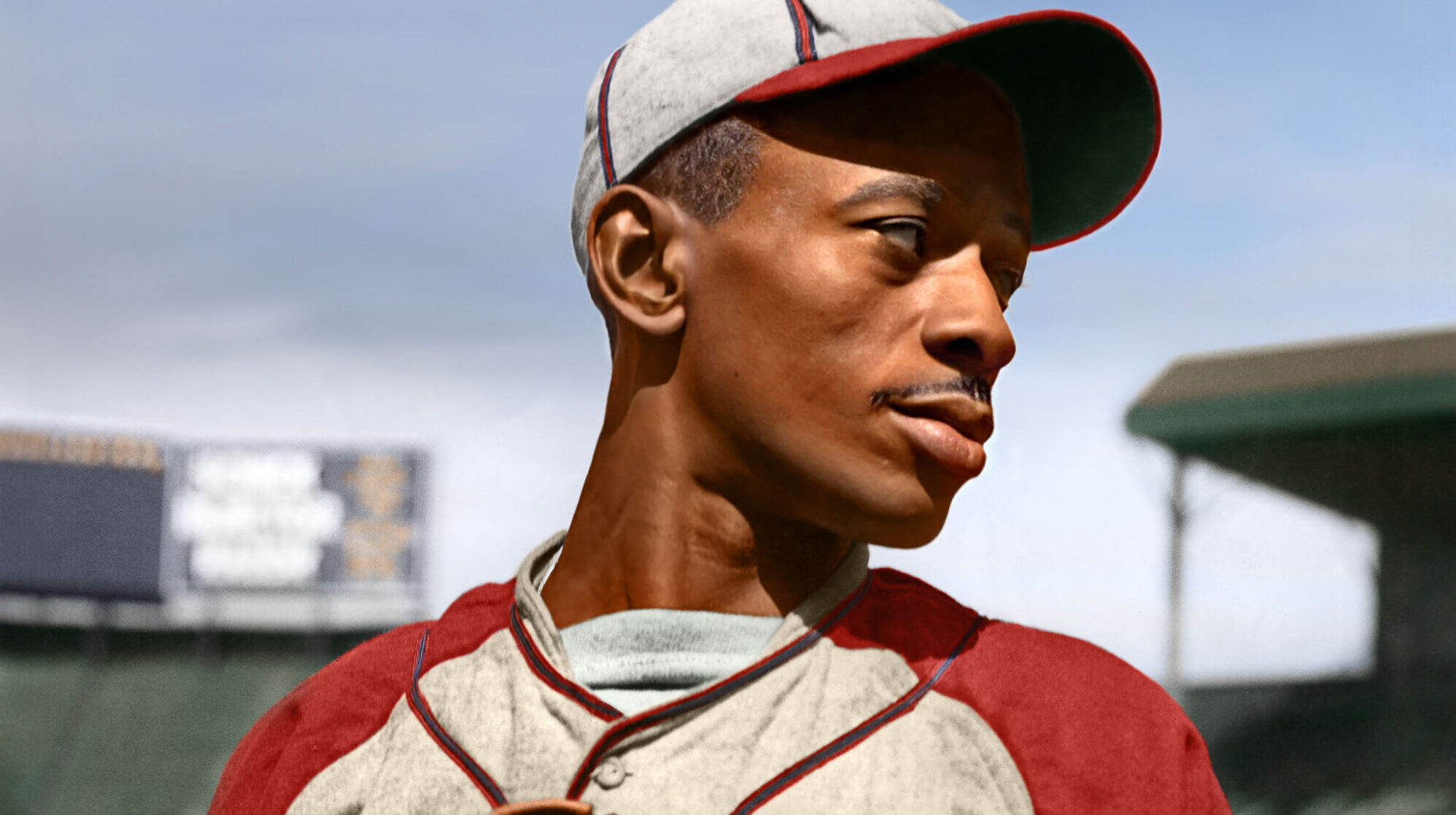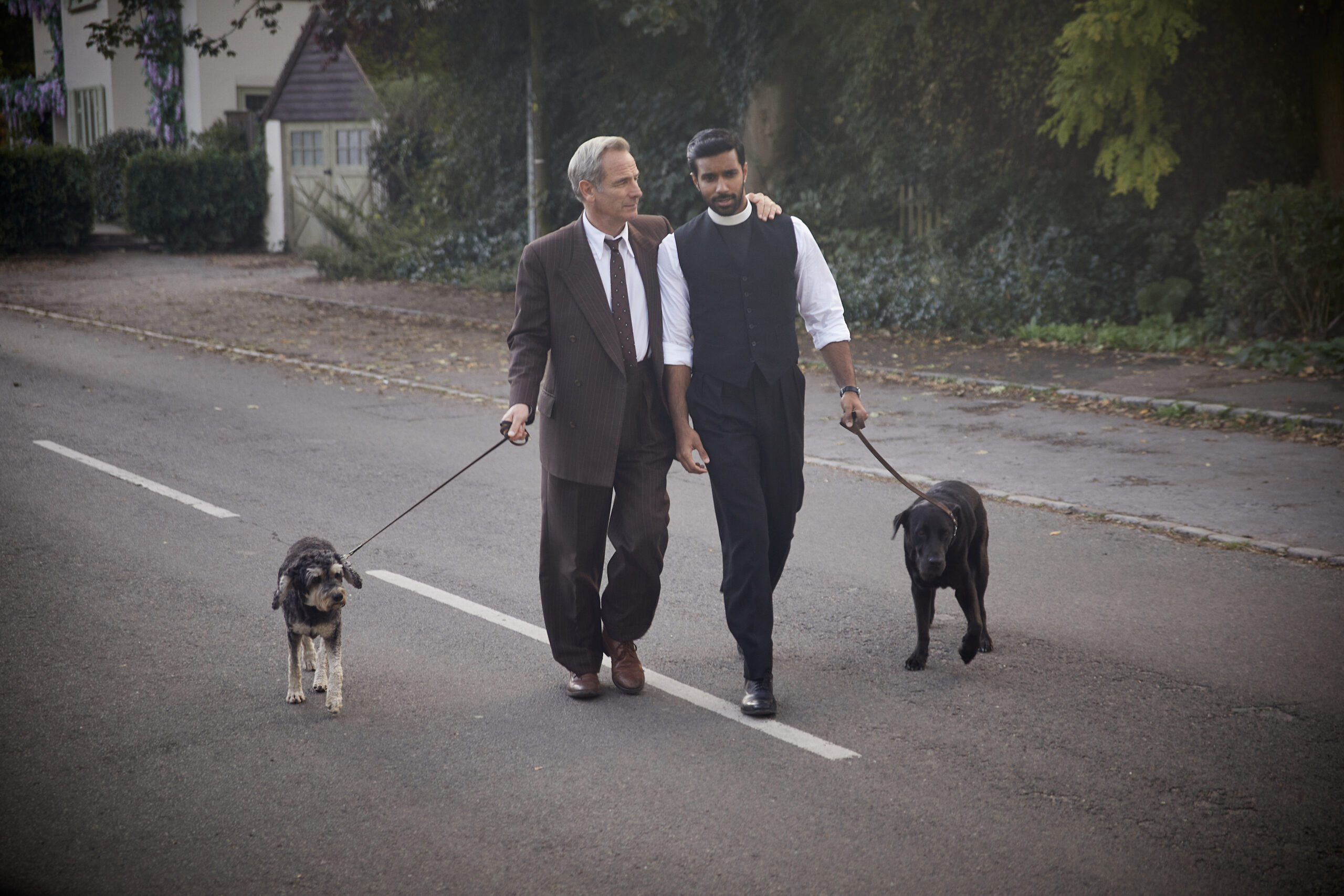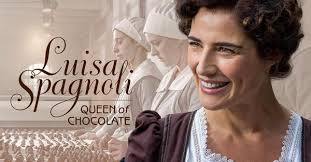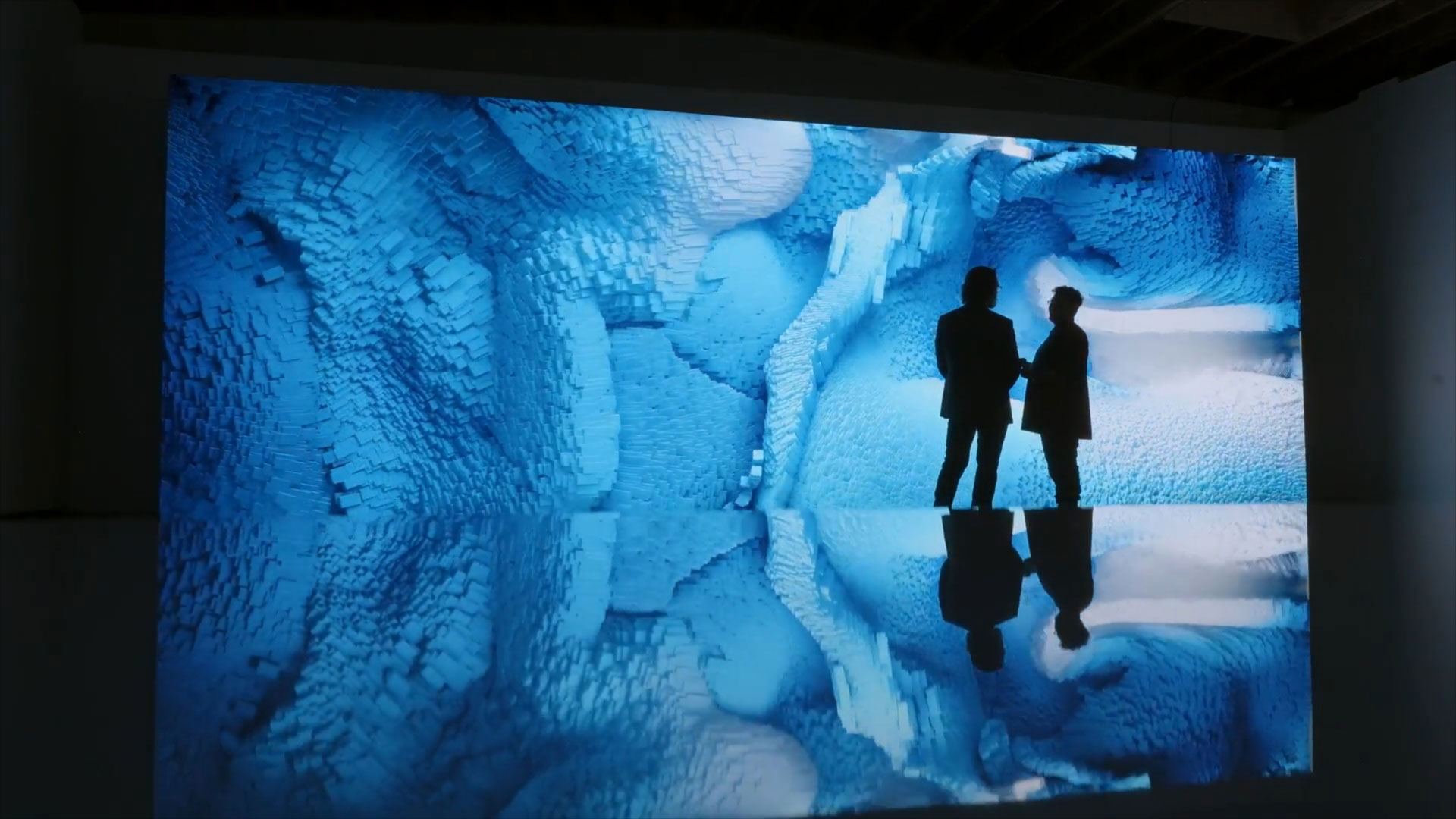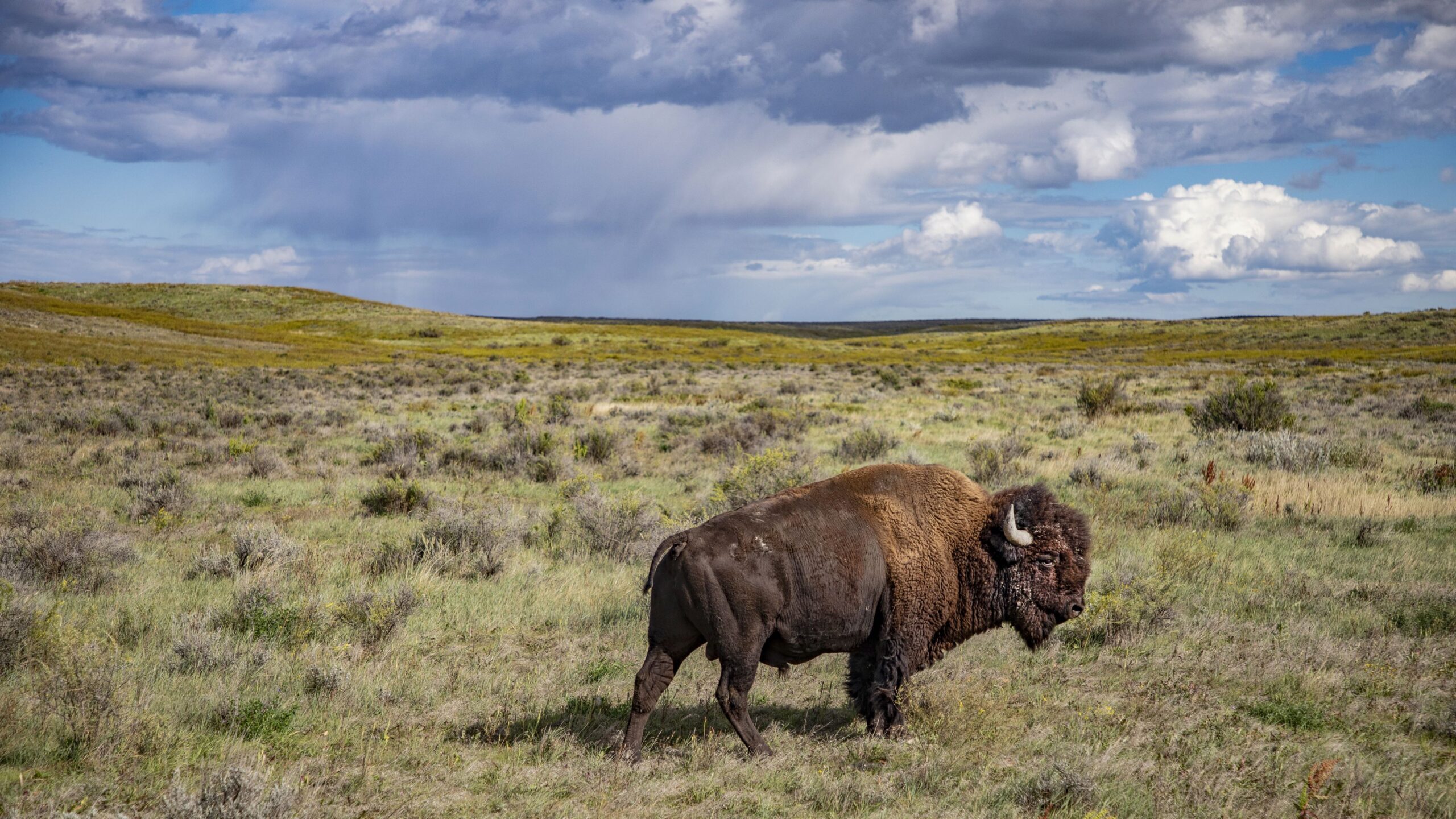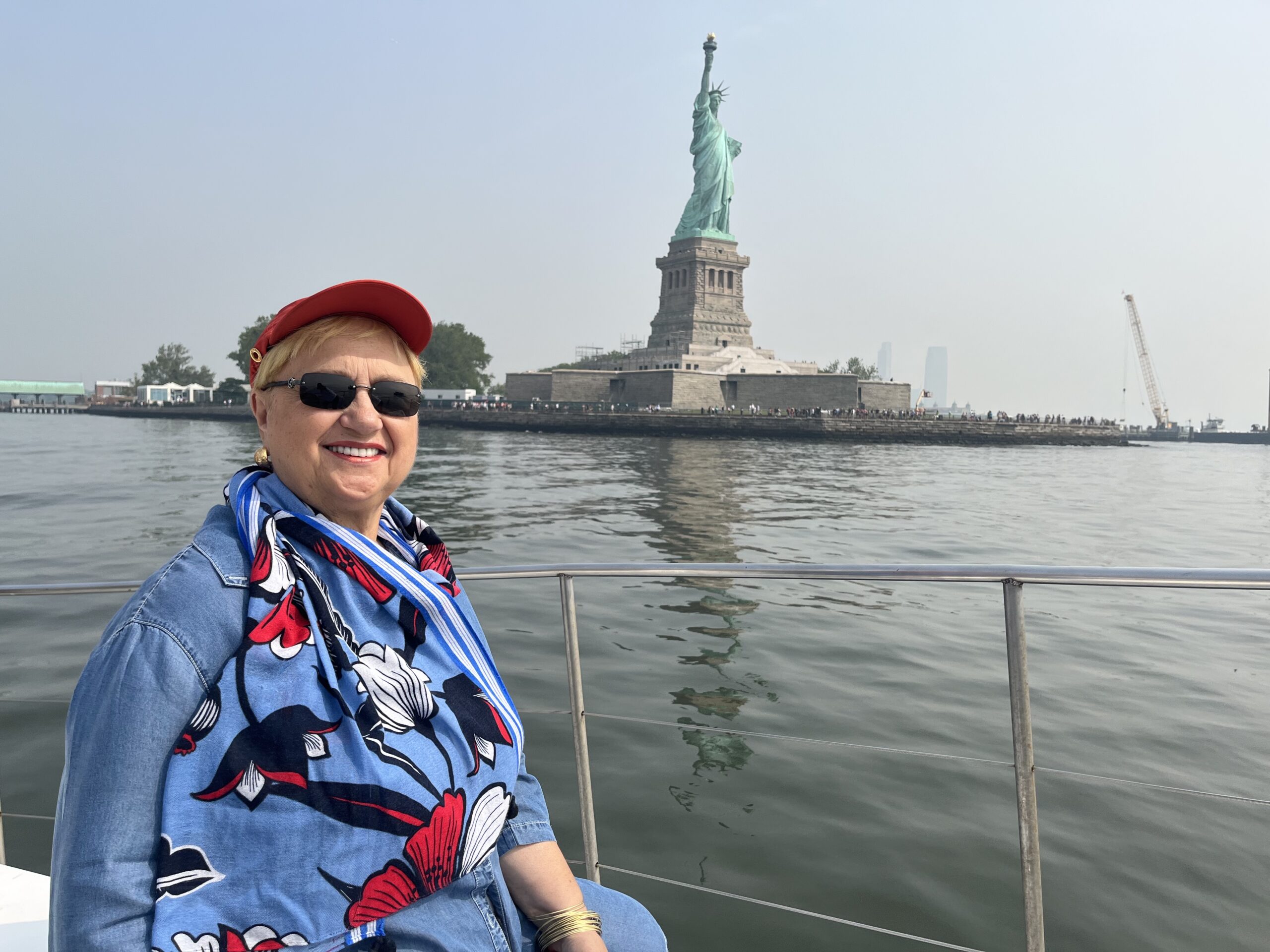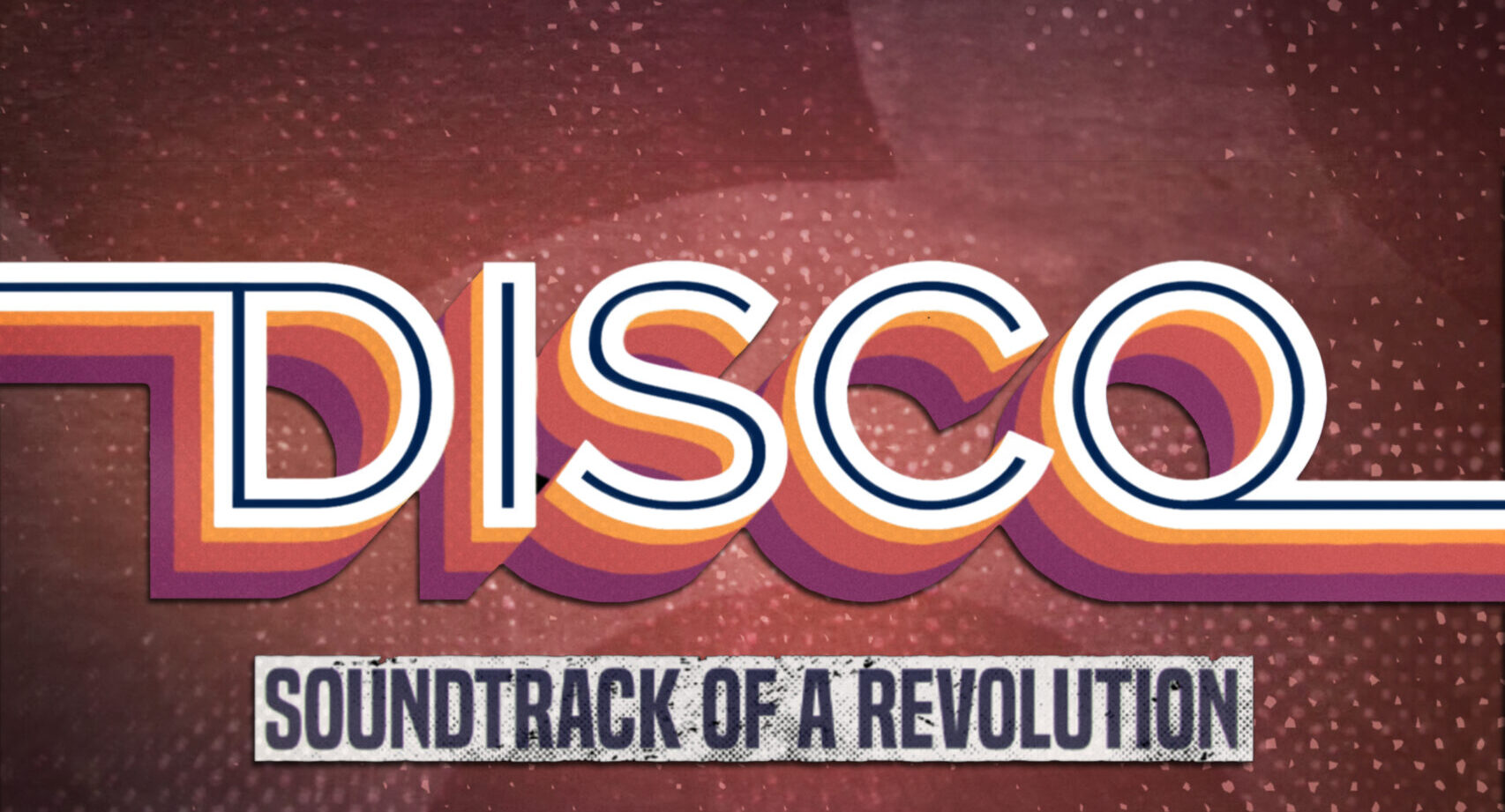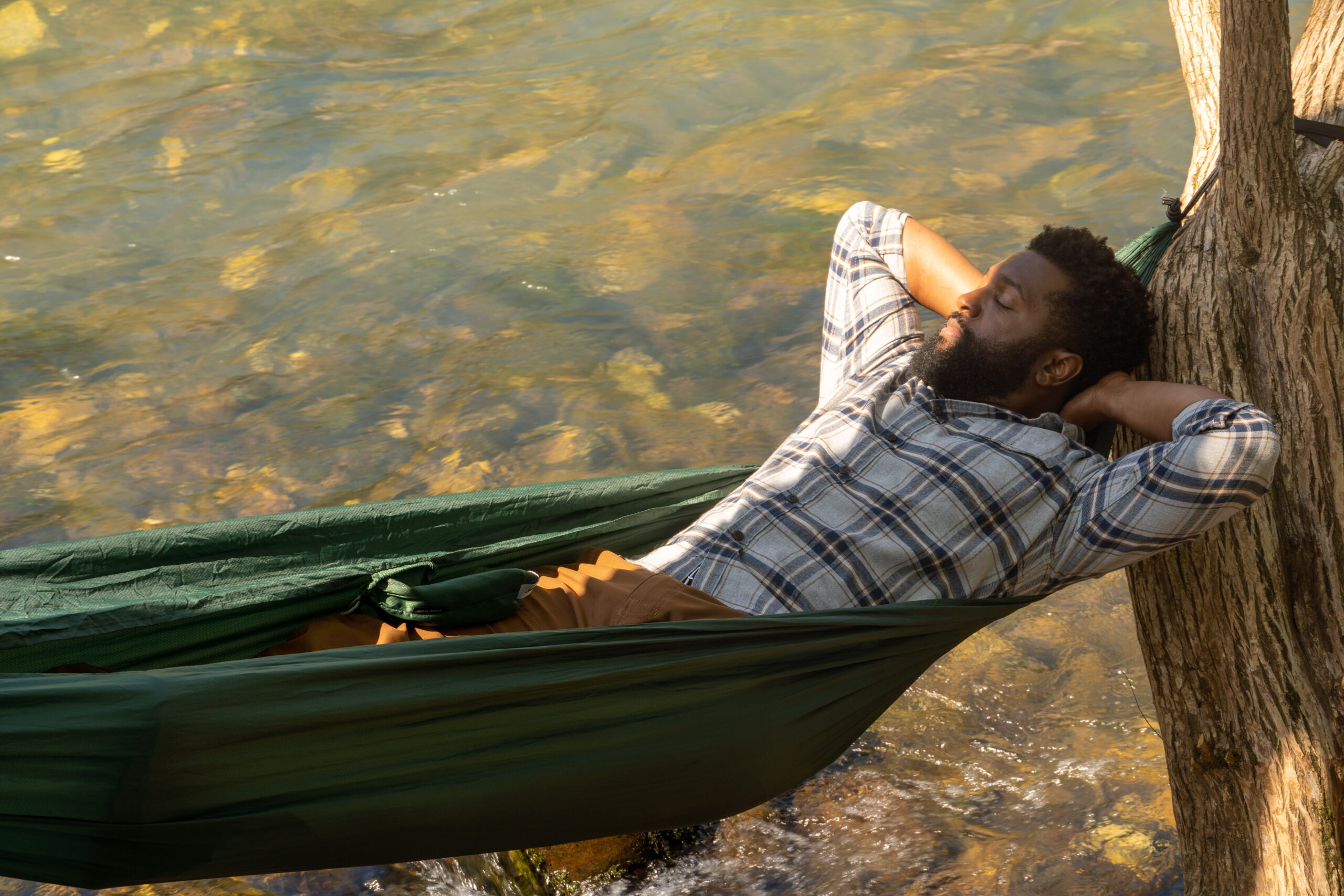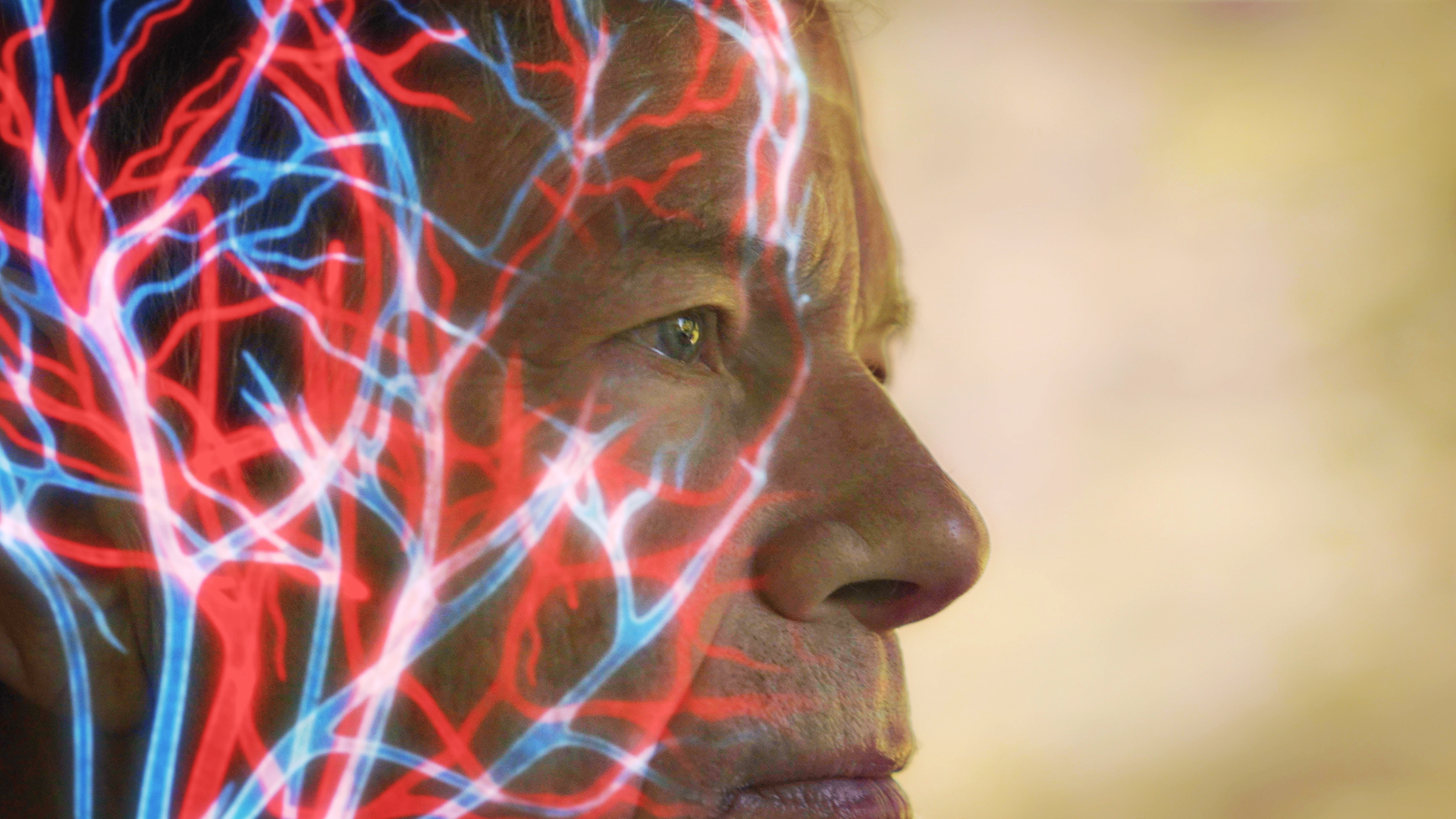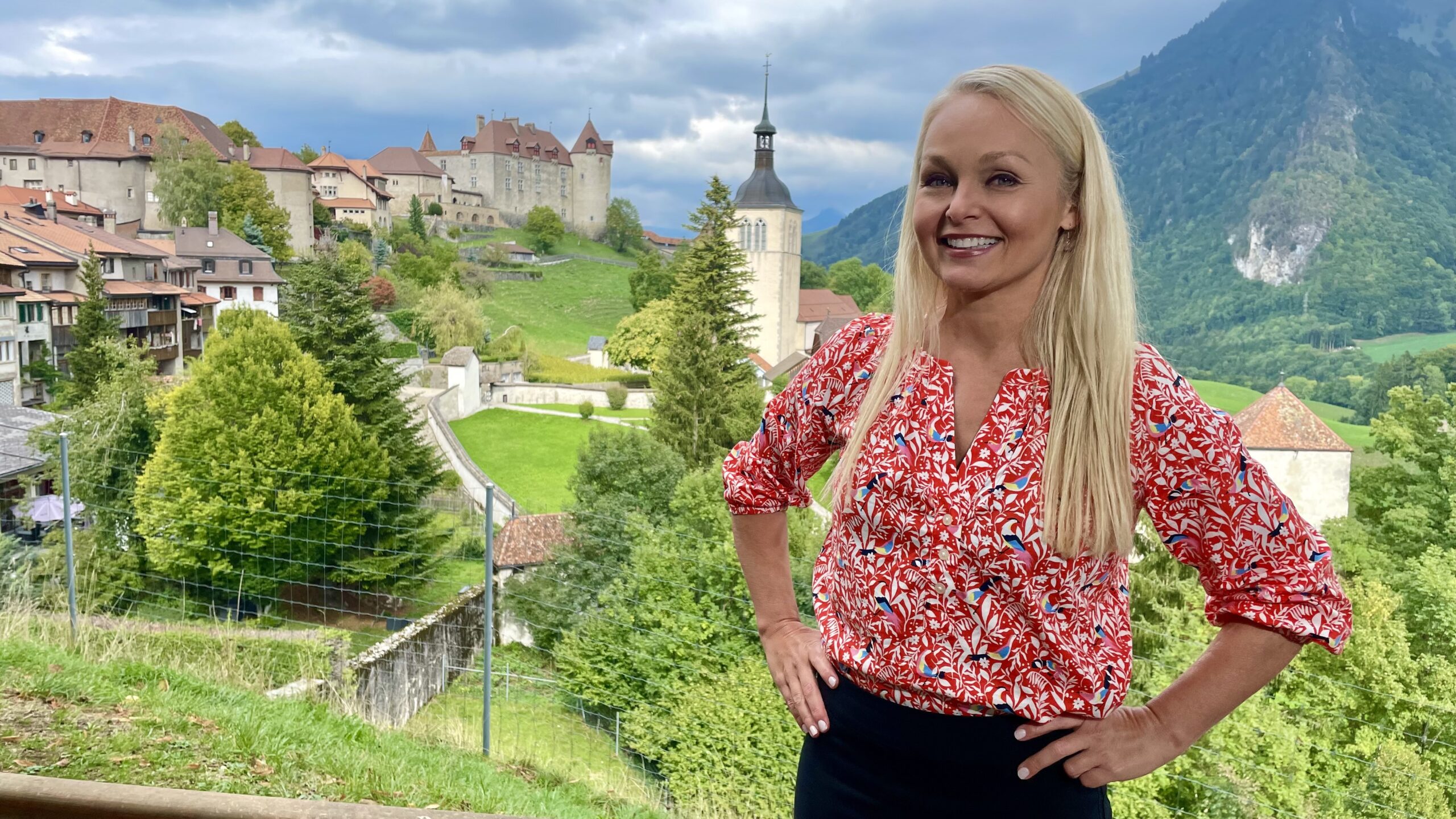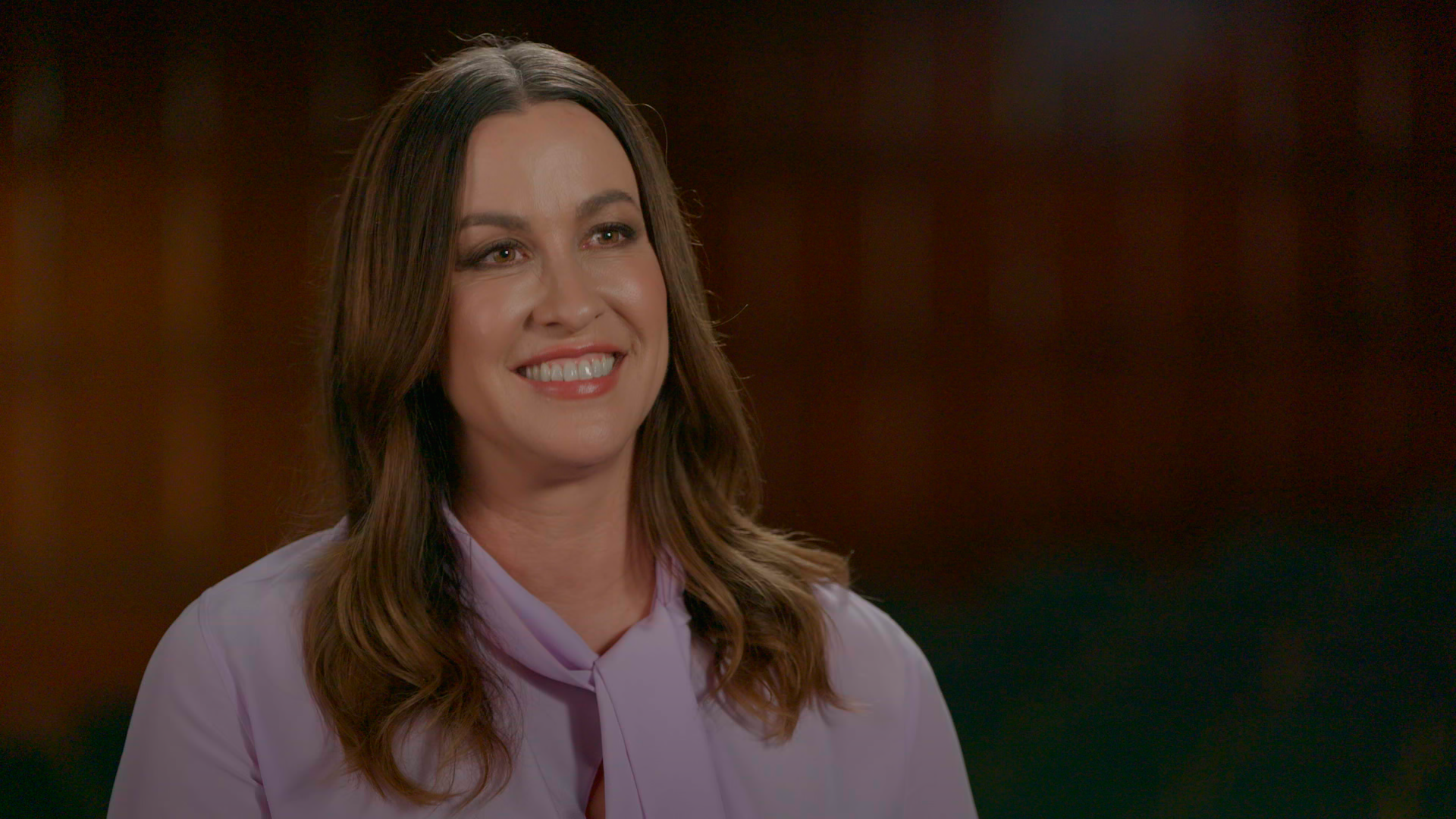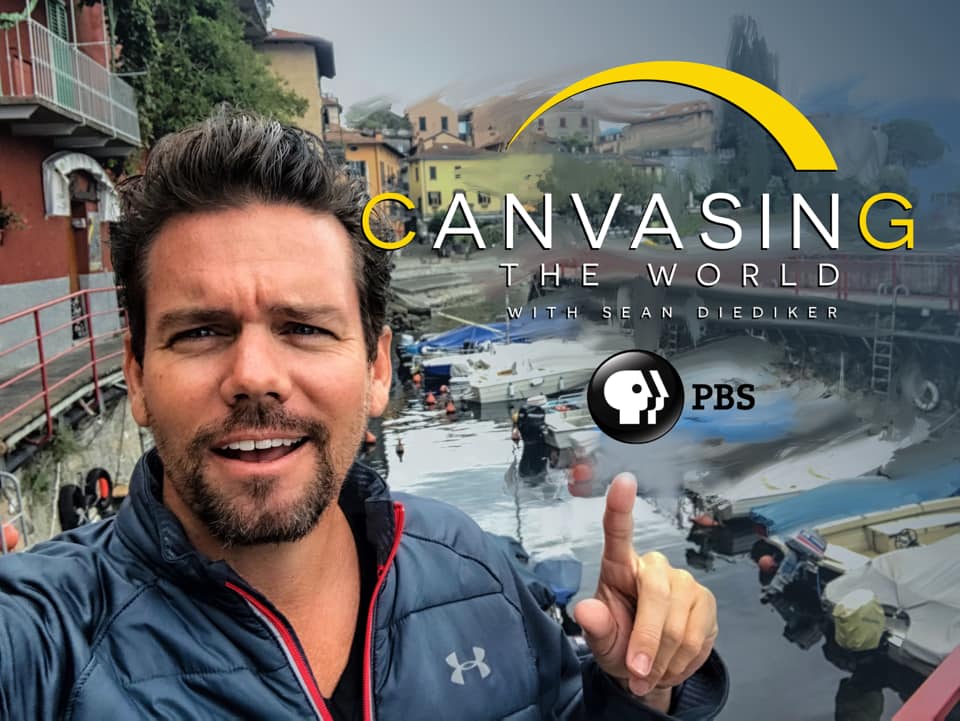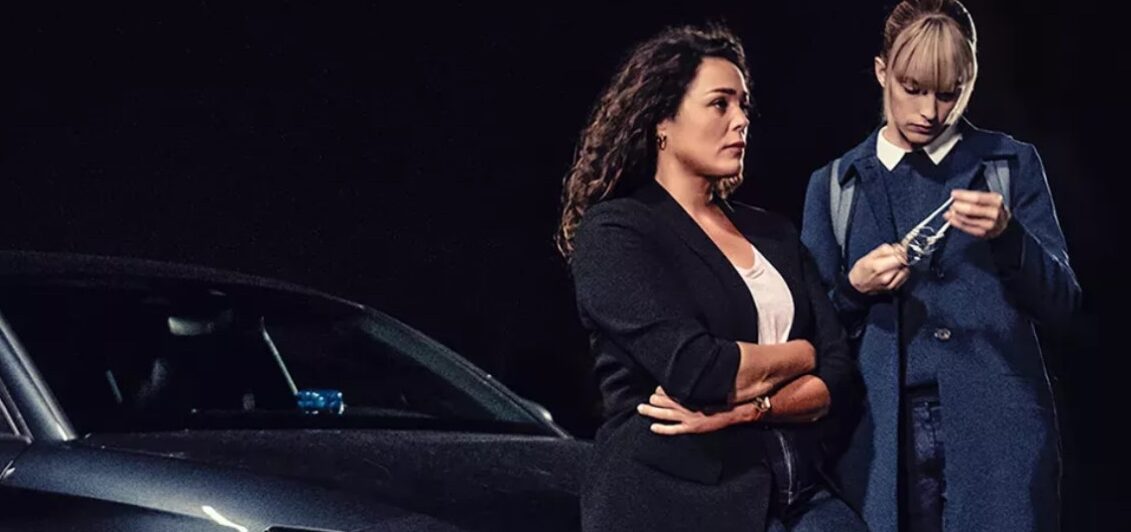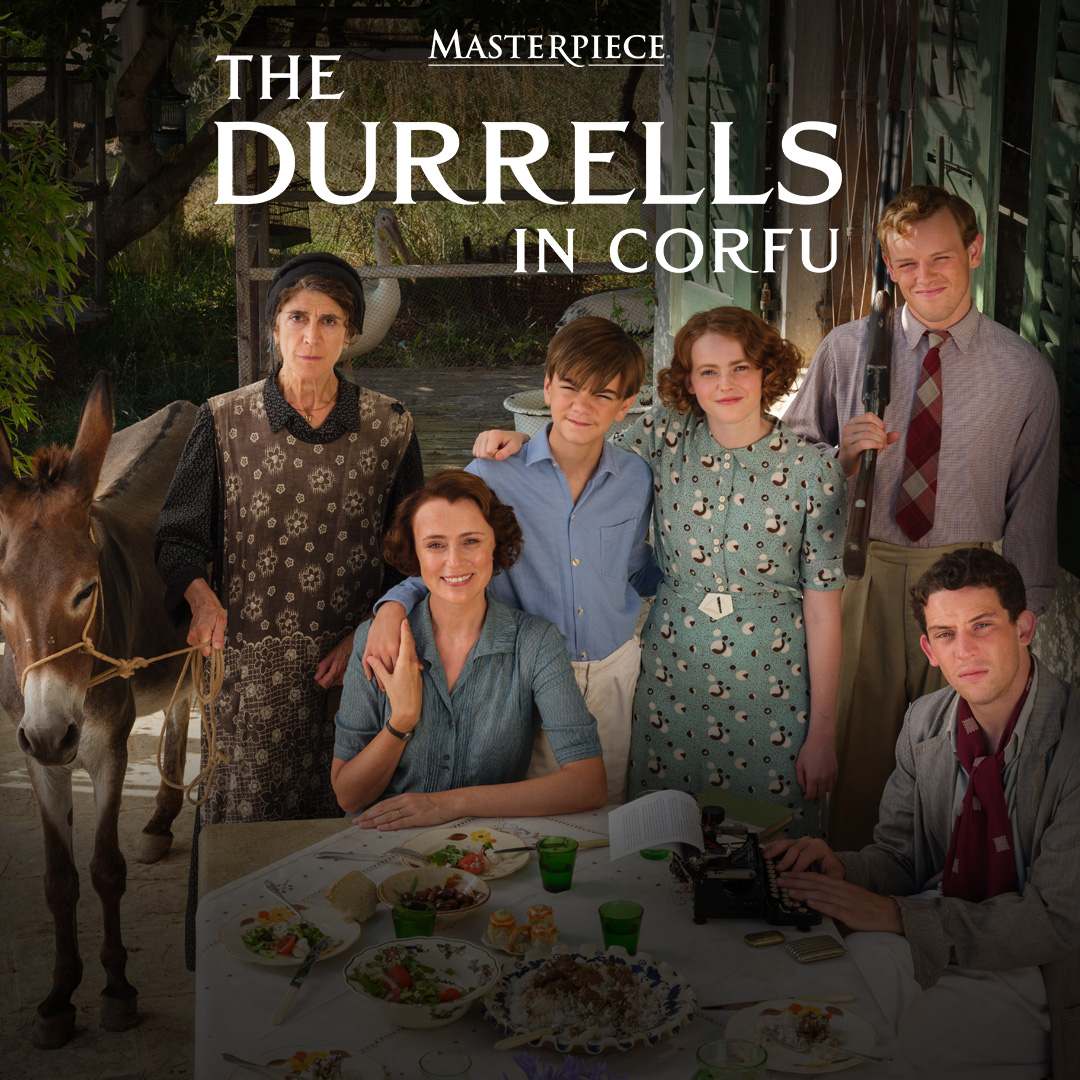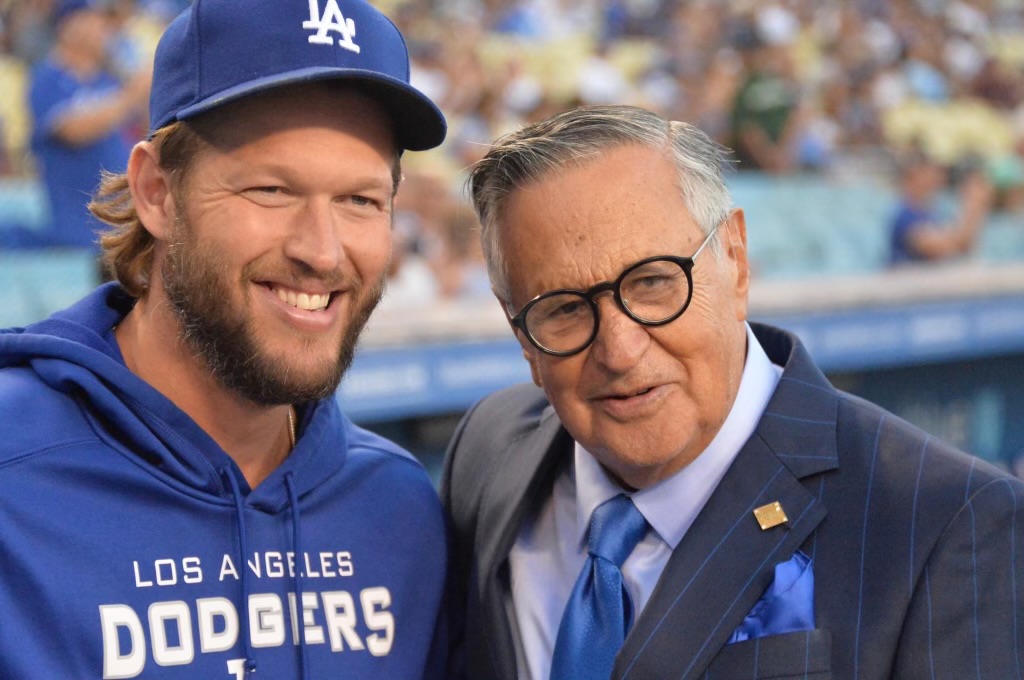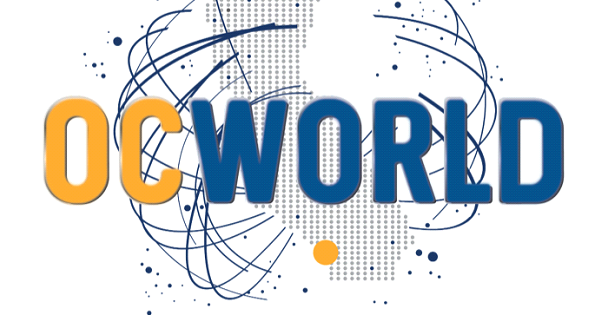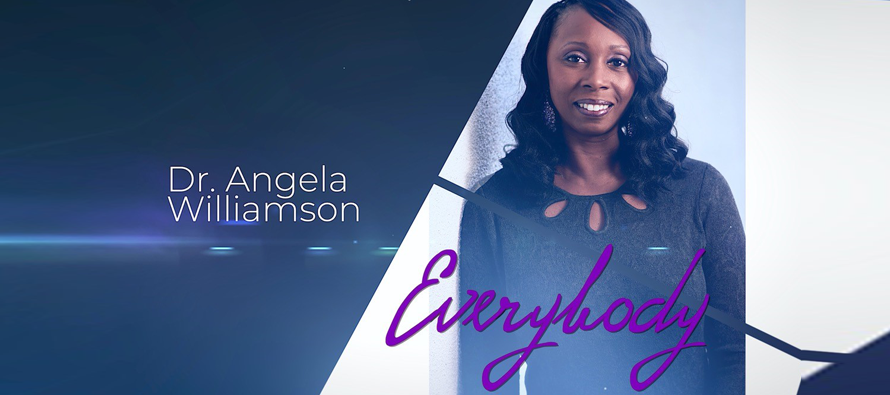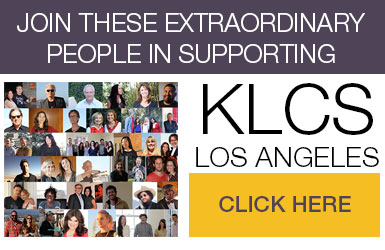Since Jacques Pépin is so synonymous with Julia Child and PBS, it’s easy to think their connection was through PBS; KLCS Public Media talks with this cooking legend about how he met the still unknown home cook after he first arrived from France, where he was personal chef to Charles de Gaulle. And, while Jacques may be a legend to many celeb and PBS chefs, he shares his grounded view of how he sees himself, why he turned down working for JFK’s White House and chose Howard Johnson’s instead, his cleaning routine (which in this drought might be helpful for home cooks), what his life is like now and whether he would ever do another PBS cooking show again for viewers who miss him.
Jacques, I always ask, “What your path to cooking and your shows?” But I just found out you went to Columbia and got a BA an MA degree! I always thought you came here as a seasoned chef, and personal chef to Charles de Gaulle and then worked at Howard Johnson’s. Also, I always ask everyone do you have a Julia Child story and for you Julia was your connection to PBS?
Not really, not really, I met Julia in 1960, so that was way before she did any television. That was when she was totally unknown at that time because she had never been in a magazine or newspapers. She hadn’t done any books; she hadn’t done any television. So, I met her in New York at my friend’s, Helen McCully, who was food editor of McCall’s and House Beautiful and because Helen had received the manuscript of “Mastering the Art of French Cooking.” She showed it to me and asked me what I thought and she said, “The woman is coming to New York next week, do you want to cook for her?” and so forth. And that’s how I met Julia and I was here like six or eight months. In fact I spoke French to Julia at the time. She had just come back from spending a few years in France, so her French was better than her English at that time (laughs), so I knew her forever, way before she did television.
I loved that special treat of going to Howard Johnsons. There was something fun and special about eating there. Do you ever think about that time and miss it? That’s such a big piece of Americana.
In 2000, Time magazine asked me to write, they did “100 Most Important People of the 20th Century” starting with Ford I think, and finishing with Bill Gates. Anyway, one of them was Ray Crock who did McDonald’s and I met him several times with Mr. Johnson. Kentucky Fried Chicken, McDonald’s, were smaller than Howard Johnson, so they asked me to write that piece. And I realized that in the mid-60’s when I worked there, Kentucky Fried Chicken, McDonald’s and Burger King, those three companies together were smaller than Howard Johnson. Howard Johnson, was, except for the American Army, the company who produced the most food in America. And Mr. Johnson was a regular at Le Pavillon, the restaurant that I worked with in New York when I first came, and he enticed Pierre Franey who was the executive chef to come and me too, so that’s how I ended up at Howard Johnson’s in the spring of 1960 when I had been offered the job at the White House by Kennedy, but I went to Howard Johnson’s.
It’s so funny to me because you’re so French and Howard Johnson’s is so Americana, it’s funny that you ended up working there and helping them with their menu.
I don’t think so, for me, I didn’t want to go to the White House or a place like this because I had done it back in France and remember that at that time the cook was really at the bottom of the social scale and any good mother would have wanted her child to marry a lawyer, a doctor, certainly not a cook. In France, I had never once been asked to go to the dining room for a kudo, or an interview by a magazine, that did not exist. The cook, if anyone comes to the kitchen, was to give you a hard time because something went wrong. So when I was offered the job even at the White House, I didn’t realize the potential and the way things would change. Howard Johnson’s on the other hand, I was getting into a totally American environment, mass production, chemistry of food, American eating habits, all kind of things that I didn’t know as a French chef. In fact, when I left Howard Johnson’s after 10 years, I opened a restaurant on Fifth Avenue called La Potagerie and I opened the (Windows on the World) World Trade Center with Joe Baum. I would never have been able to do any of that without the training at Howard Johnson’s.
Do you have a favorite dish at Howard Johnson’s that you liked?
Of course, a lot of them, all of them, from the hot dog to the hamburger, the chicken pot pie.
I miss you not having a show on PBS, so whenever a re-run of “Heart and Soul” or “Fast Food My Way” comes on, I just relish it. Do you miss doing a show on PBS as much as we miss you?
Since the beginning of the pandemic, my daughter Claudine was here in conjunction with my son-in-law here who runs the foundation. They asked me to do the Facebook videos for people and we’ve done 280 of those in the last two years (laughs) so I’ve done a lot of that type of thing and frankly I have hundreds of shows on YouTube, which are a repeat of PBS, so that might be all over the place.
So there won’t be a chance for you to resurrect another show for PBS, even if it’s just six episodes. Not for PBS, you don’t think? Maybe?
I don’t know. We just did a series of shows for Facebook for American Masters. In that show, American Masters did that one show on me, on my life, so they asked us to do several shows, which they used on PBS, and WNET I believe, in New York and some others.
What’s a typical day like for you now?
Typical day for me? I get up, walk the dog, do breakfast, go to the garden, pick up tomatoes, whatever. I am very busy, I have interviews, like with you, probably two or three a week, I’m giving classes in one place or another. I’m executive culinary director of a cruise line, so we do cruise. My daughter is one of the godmothers of a cruise ship as well, so we do this. So, a fair amount of travelling still and I’m busy with the foundation that we have. We had our big meeting in April at the Yale Club in New York. I do a lot of painting also; I have an art show and I have an art site also, so that takes me a fair amount of time, too.
Do you want to talk about your foundation and what it does?
My son-in-law teaches at Johnson and Wales, he’s a chef by profession for years, but he eventually got his PhD and he’s teaching, as a food professor, there and a few years ago he had asked me, because I did thirteen series of 26 shows for PBS, so that’s 100’s and 100’s of shows, so he said, “What do you think you would like to teach now?” “I think maybe we should teach people who have been disenfranchised by life, like the people who have come out of jail, or former drug addicts, or homeless people, veterans, or people like this. And that’s what we do through Community Kitchens. There are hundreds of Community Kitchens throughout the country, so we work with them, like the week after next I will be doing a demonstration at a Community Kitchen in New York City. But we work with them to give them grants and also to teach them through my videos to learn the very simple basics of cooking, so you can re-integrate the workplace and for people and kind of re-do a life and get some dignity and so forth, so that’s what the foundation does.
Do you have a favorite dish that’s quick and healthy that you like to go to?
Yes, bread and butter. If you have the greatest bread, a great baguette, if you have fantastic butter, it’s hard to beat bread and butter, believe me.
What’s the favorite part of what you do?
The sharing. The sharing of food together, it brings people together. Tomorrow we have a party here with like 50 people and we’re going to eat together and play petanque, which is a French game of boule, like bocce ball like. And there is no question, even for a child, my granddaughter graduated last weekend from high school and she’s starting at Boston University in the fall. And when she was three, four years old, she had to have a stool next to me at the stove, I said, “Give me the salad,” “Do you think that’s clean?” I said, “Go to the garden, get parsley, no that’s chive, taste it, that’s tarragon.” I go to the market with her, I said, “Get me some pear and make sure they are ripe. Did you smell them? You think they are ripe?” So you have to work with the kids, it’s very, very important. After school, the greatest place is in the kitchen, to hear the voice of his mother, his father, the smell. Those tastes and those smells stay with you the rest of your life, they are very visceral. So that type of thing is very important for us in our family – my daughter here and my son-in-law, all of us. That’s our style of life, that’s how we act and communicate together, either in the kitchen or sitting at the dining room.
I really miss those shows with her, Claudine, and watching your granddaughter grow up on the show. I always ask everyone if they’ve had a Julia Child story, but is there anything you want to mention, that has been a memory or would it be the serendipitous moment when you first met her? I guess it was very pivotal in your life as well.
I met her a few months after I was here, with James Beard and Craig Claiborne, who started at the New York Times. And those in a sense – James Beard, Craig Claiborne and Julia Child were kind of the trinity of cooking in America. So it was a very, very small world, the world of food at that time. But then I continued. I love Craig, I got married in his house, he did the wedding and so forth. I love James Beard too, but Julia, I stayed with her much longer and we did those shows together, and we taught at BU (Boston University) together. I’m still teaching at BU after 37 years, in fact I’m supposed to go there in a few weeks, and she lived in Boston. So I go to Boston, I go to her house, she came here and then eventually we end up teaching together at BU, having a great time and doing shows together. The beauty of it is that the shows that we did were very casual because we didn’t have any recipes. We said, “Let’s do stew” or whatever without a recipe. When the show was finished taping, it took more than two years to come on the air because they had to do a book and they had to look at those shows ad nauseam to extrapolate recipes (laughs) so that they could do a book, which is the reversal of the way it’s done conventionally. In addition to that, Julia and I share a bottle of wine on the stage and we didn’t care about the time. Conventionally, when a show like that is thirty minutes, they try to have you not to do any extra time because it’s too expensive for the editing and so forth. With Julia we did some shows which were 80 minutes, 90 minutes, “Ok, fine.” So that was in a sense a very easy show to do, because we are two friends, we cook together, you have no recipe, do what you want, you have no time restraint, and you have a bottle of wine (laughs).
When I asked Bryan Roof of Cook’s Country, “Do you ever indulge and just watch a bunch of PBS cooking shows?” He mentioned how he kept bumping into you at the Emmys and he loved watching your show. Do you ever indulge and watch any cooking shows at all?
Not much really (laughs), not much really. But you know, many people who look at the show have told me they never cooked, but they like to look at cooking shows or whatever. So there are people who identify with you and love you more, I’m sure there’s many people who don’t care at all about me or say, “That guy is boring,” so you identify with someone, you like that person, you don’t like another one, it’s perfectly fine.
I guess you don’t really miss being on TV, like you said, you’ve been doing a lot of videos the last couple of years or because you’re doing it in other places?
They still air my show occasionally, “Heart and Soul” or on YouTube. KQED is releasing those shows for YouTube or many other types of things, so it will be all over the place.
I still wish you had new shows on PBS. You’ve had such a rich life; what’s been the favorite part of your life?
The favorite part, to a certain extend, is the diversity. I came to America, most people come to America to get a better economic life, or for political reasons, or any of those stuff; I didn’t have any of this. I was pretty well-off in France, I was doing good and I said, “Ok, I’ll go to America for a year, I’m going to learn the language a little bit, maybe a year, two years and come back.” That’s over half a century ago, I’m here and as you said at the beginning, I went to Columbia. I came here in 1959; three weeks after, I was enrolled at Columbia. I left school when I was thirteen, so I never went to high school or anything like this, and someone told me on the ship when we were coming on the boat, I said, “What is the best school?” He said, ‘Oh, Columbia University.” I never hear of it of course, so I went to Columbia and enrolled in English for foreign students. From 1959 I went to Columbia, to 1973, working of course full time, but at night going to Columbia, so I went there for like 15 years, up to when I was doing a PhD, where they actually refused my thesis because the thesis was the history of food in the context of civilization and literature. At that time they said, “Are you crazy? Food?” (laughs) But, I have to say that Columbia gave me a doctorate after.
Oh, that’s why you didn’t do the PhD; you never could do it because that was your thesis.
Yeah, I did most of the requirements, but they didn’t want the thesis, so I said, “Alright, forget it.” But a few years later they gave me a PhD anyway.
Do you pinch yourself Jacques, that you got to do this for a living, you got to do what you do and have this life in America?
Not really. I feel that you do things in life which kind of project you in a direction and from that direction, you do another thing which projects you there and very often sometimes a small decision of working here or doing one thing that becomes very important. So this is what life has been. I’ve been really lucky because of a great deal of diversity. I had some very bad accidents in the ‘70s that took me out of the kitchen, so I had a column in the New York Times for like 10 years; I wrote books, I do television and I did consulting work for restaurants and other chefs. So I’ve been always in the food world, but many different areas of the food world that I probably wouldn’t have done in France, I know that. So I’ve been very lucky this way.
What’s the most popular question you get?
People talk to me and say, “What are you cooking today?” or “What’s your favorite meal?”
You probably say bread and butter, right?
Sometimes. Basically, it depends on what I have in the refrigerator, whether it’s summer or winter, whether it’s cold or hot, whether I’m in a good mood or a bad mood, whether I have a hangover or not. So all of that is going to decide what I am going to eat. (laughs)
As a cook, they don’t talk about this much, but what’s your cleaning routine? Cleaning I think is the hardest part of cooking, there’s always grease.
I am very organized this way. The video that we did, we started with my friend Tom Hopkins who has been photographing my book for 40 years and it was beginning of the pandemic, so even his wife did not come into the kitchen, no one came. We’re one all those shows: two people. I cook and I do the dishes and he taped, and so forth. So, two people in the kitchen. But that’s very important, that’s a very good question. I may use the food processor five times before I wash it. I need some bread crumbs, no need to wash it, eventually I’m going to ground some fish, so then I have to wash it. Likewise with a pot, I use a pot or a skillet, I rinse it just briefly to re-use it, to re-use it, to re-use it. There is habits I got that you get to minimize the amount of cleaning and to minimize the amount of work.
Is there anything you want to add or tell viewers?
I have a book coming out this summer; I have another one coming out next year. I don’t know if you’re familiar with my book “The Apprentice: My Life in the Kitchen,” which is the story of my life. All the details that you asked me, they would be in there. “The Apprentice” I did not want to do recipes, I did the story of my life. And at some point, as I was telling you before, I realized I was doing a lot of painting, also, since I’ve been married, after of 54 years of marriage, over 50 years ago, we decided when people came to the house, we wrote the menu and people signed on the other side. So I have 12 big books of menus going back to when Claudine, now which is in her 50s, asked me what she ate when she was four years old. So, I realized I was doing a lot of illustrations of those menus and a lot of chickens. So I decided to do a book of chickens, but of paintings. I have 130 paintings of chickens. But then they wanted recipes with that, I said, “I don’t want to do recipes because I have 30 books of recipes.” So I did like I did for “The Apprentice,” I tell you a story. I have 200 page, 300 pages of stories about eggs or chickens, whether it was in Africa, in China, in France or anywhere in the world that I have been. So, I tell you a funny story about chickens or about eggs or about stuff like that, so that book is coming in September “The Art of the Chicken.”
Jacques Pépin: Heart & Soul airs on KLCS CreateTV Monday afternoons; find the full schedule on www.klcs.org/schedule
You can keep up with Chef Pépin on his Facebook page (facebook.com/ChefJacquesPepin); Learn more about his foundation on Instagran (instagram.com/jacquespepinfoundation) or see his art postings on Twitter (twitter.com/jacquespepinart).

